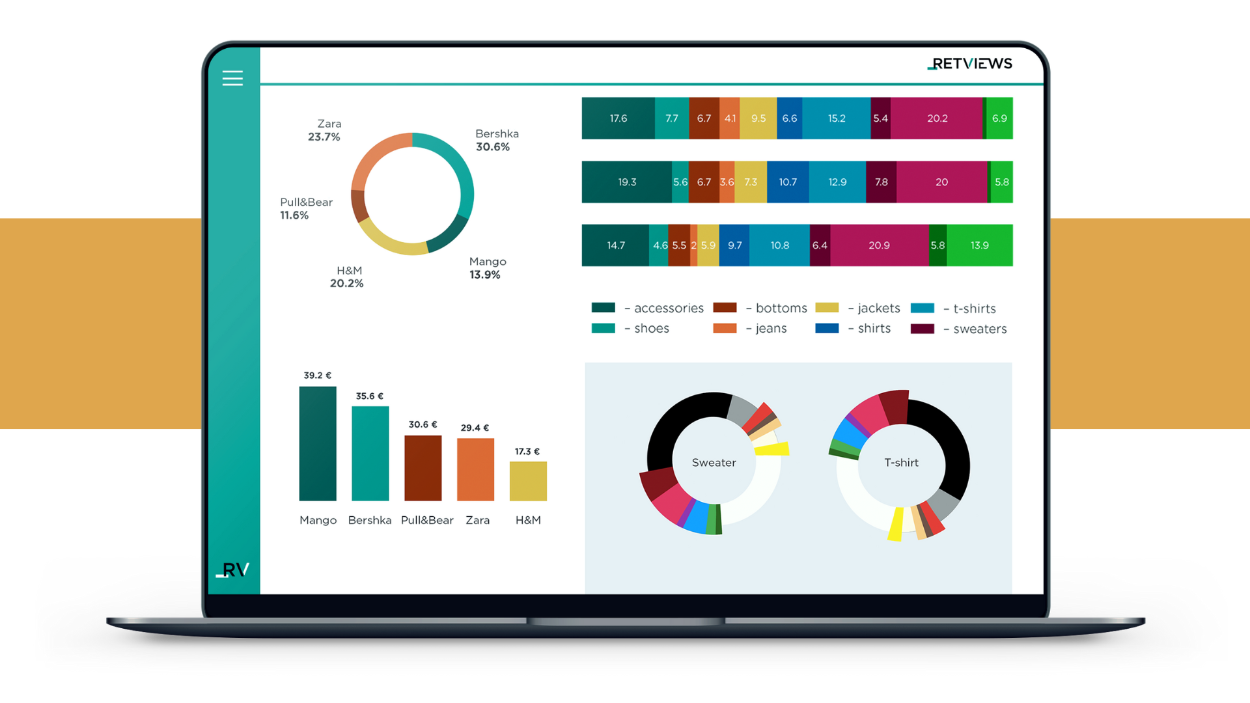Released in The Interline’s AI Report 2024, this executive interview with Lectra is one of a fourteen-part series that sees The Interline quiz executives from companies who have either introduced new AI solutions or added meaningful new AI capabilities into their existing platforms.
For more on artificial intelligence in fashion, download the full AI Report 2023 completely free of charge and ungated.
Key Takeaways:
- Lectra utilizes AI to enhance the fashion value chain by improving decision-making, transparency, and innovation through data analytics and AI-powered solutions like Retviews and TextileGenesis.
- Lectra’s vision for AI includes not only boosting profitability and efficiency but also supporting sustainability and regulatory compliance in the fashion industry, making AI a crucial element in transforming business practices and meeting future challenges.
What’s your working definition of AI? Does it differ from the public understanding, which is currently dominated by large language models and generative text-to-image models? And how does that definition manifest itself in your solution(s)?
Artificial intelligence, or AI, is technology that enables machines to simulate human intelligence and problem-solving capabilities. It does so by enabling computers and digital devices to learn, read, write, create and analyse. At Lectra, a select number of our innovative solutions use AI technology for data analytics for improved decision-making, which differs from the creation of new content from existing data (generative AI).
AI-powered data analytics are revolutionising the way Lectra’s fashion customers process product data, analyse market trends and satisfy consumer demand. Using AI to gather, measure and model data leads to the discovery of valuable insights. Informed decision-making enables greater business agility for faster adaptation to changing market demands.
As a company that has covered the extended fashion value chain for a long time, across equipment, software, and services, how important do you believe information and intelligence are to protecting, transforming, and optimising that value chain today?
Lectra strives to facilitate informed decision-making for customers while helping to continuously improve their operations. As an Industry 4.0 pioneer, Lectra believes in the power of the cloud, big data and artificial intelligence to connect the upstream and downstream production processes. Brands can take advantage of this abundance of data to push boundaries and unlock their potential.
AI is revolutionising the fashion industry and Lectra is paving the way by offering brands a powerful ecosystem of software solutions. Each solution is purpose-designed to manage a specific activity of the fashion value chain, in complement to a range of other activities. Lectra aims to connect these different solutions by harnessing the power of AI to control and analyse the flow of data generated by the related activities.

By combining technological expertise in data analytics and applied AI, the group seeks to drive innovation and introduce pioneering new services that enable customers to continuously improve their operations throughout the value chain. Today, fashion value chain modelling is possible. AI can help track the entire lifecycle of a garment, from raw material sourcing to manufacturing and distribution. This kind of transparency allows consumers to understand the social and environmental footprint of the products they buy. It also enables companies to meet the growing burden of compliance requirements while supporting their CSR efforts.
Competitive landscape mapping is another way that automated data modelling can help companies optimise their value chain. Image and text recognition technologies can be harnessed to provide an accurate picture of competitor offerings and pinpoint valuable market insight in real time using automated data analytics. This kind of data-driven competitor analysis enables companies to make confident decisions and gain a competitive edge.
There are two parts of the Lectra portfolio that really demonstrate just how important that extended connectivity and visibility are in the current climate. Retviews is home to a huge amount of market insight and competitive intelligence, and TextileGenesis is focused on providing full transparency from fibre to finished product. Determining what products to bring to market, and tracking the extended journey of those products are both top strategic priorities for fashion today, which makes those solutions important sources of critical data. Tell us how these two solutions in particular fit into Lectra’s vision for connecting new parts of the value chain and maximising the value of the data they provide?
Retviews’ AI-driven retail data analytics enable fashion companies to uncover valuable insights and accelerate their decision-making process. Lectra’s fashion market intelligence solution uses powerful AI technology to track retail market data and the competitor landscape in real time. AI can monitor fashion assortments, price positioning and evolution across global markets, as well as individual product characteristics—such as garment type, stock levels, colours and fabric pattern recognition—faster and more accurately than a human being. By automating competitive benchmarking, fashion brands can quickly identify gaps in competitor practices and adjust their pricing strategy.
Lectra’s traceability solution, TextileGenesis, enables fashion brands and fibre producers to digitally map the supply chain, from the fibre to the finished garment. TextileGenesis’ rule-based AI engine powers granular traceability modelling that addresses both ends of the textile value chain, as well as networks of partners for certification. The company issues digital tokens to trace and manage textile products, whilst the solution’s technology platform guarantees the exchange and tracking of reliable, secure data.
A big part of making effective use of AI is having a central hub in the technology ecosystem that can bring together information and intelligence, from design to sale, and make it accessible, usable, and ready to translate into action. For most brands, it’s logical for that central location to be the place where key product data is already held, and where the people most active in planning, design, product development, and sourcing live, day-to-day. How do you see Kubix Link filling that role, and how does AI come into the picture?
Kubix Link is Lectra’s unique, purpose-built suite of fashion PLM, PIM, and DAM solutions. It is a cloud-based collaborative platform that helps brands streamline collection management and product development covering the entire design-to-sale process. The suite is fully compatible with our AI-enabled Retviews and TextileGenesis solutions. When used in tandem with these two AI-powered technologies, Kubix Link becomes the engine at the centre of fashion data collection, analytics, mapping, and analysis.
The suite features interoperability with Retviews and TextileGenesis, as well as widely used applications such as Adobe Illustrator, Photoshop and MS Excel. Deployed together with Kubix Link, Retviews’ automated benchmarking places emerging trends and market opportunities at the heart of the collection planning and product development processes, whilst TextileGenesis’ powerful AI-enabled capabilities enable reliable, secure supply chain tracking.

For a lot of brands, AI strategies will be competing for investment with other top-level objectives like sustainability, profitability, supply chain diversification and risk, 3D, and more. Do you see AI, and the whole-value-chain data needed to drive it in fashion, as a separate area to those, or as a way of supporting them all?
Our vision of AI-enabled business will empower companies to harness the power of data analytics to quickly meet changing requirements, boost profitability and generate greater value. The AI embedded in our solutions improves production processes, both in terms of performance and efficiency. This helps reduce material consumption and related environmental impacts. Responsible use of AI can also make a positive social change in the face of a new technological horizon. AI can help customers process CSR-related data and identify areas for improvement; create new products that are both environmentally friendly and socially responsible; and provide the hard data to demonstrate accountability.
The current regulatory environment is setting higher standards in supply chain management, especially in the areas of transparency and traceability. This will require fashion industry players to rethink the way products are developed, manufactured and distributed. By using AI technologies to offer ever more connected and innovative solutions, Lectra is accelerating customers’ transition to Industry 4.0, which delivers the visibility, control and decision support to meet future challenges.
What do you see as the near-term future of AI – both within your solution(s) and in general? Do you believe it will be a transformative class of technologies the way people expect?
In the near term, our goal remains the same—to bring together people from across the value chain to increase productivity, streamline workflows and reduce waste. Our innovation, product marketing and R&D teams work with customers on a daily basis to identify the business processes that could benefit most from AI’s fast time to insight.
With the acquisition of Launchmetrics and the addition of the brand performance suite into our portfolio, our group is expanding its presence across the fashion value chain. We aim to consolidate our knowledge in fashion, capitalising on Launchmetrics’ significant AI expertise.
A growing number of companies want to take advantage of the phenomenal potential of data, and Lectra is ready to support them. Areas of focus include the automation of low value-added tasks, and faster decision-making in complex business environments. We are also exploring the potential of generative AI, a promising technology that must nonetheless be exploited with precaution and restraint.
Lectra is actively expanding its fashion technology portfolio, acquiring new expertise in areas beyond its core competencies. Innovation, collaboration and agility are essential to remaining competitive in the marketplace, and Lectra will continue to develop relevant solutions to rise to customer challenges.
